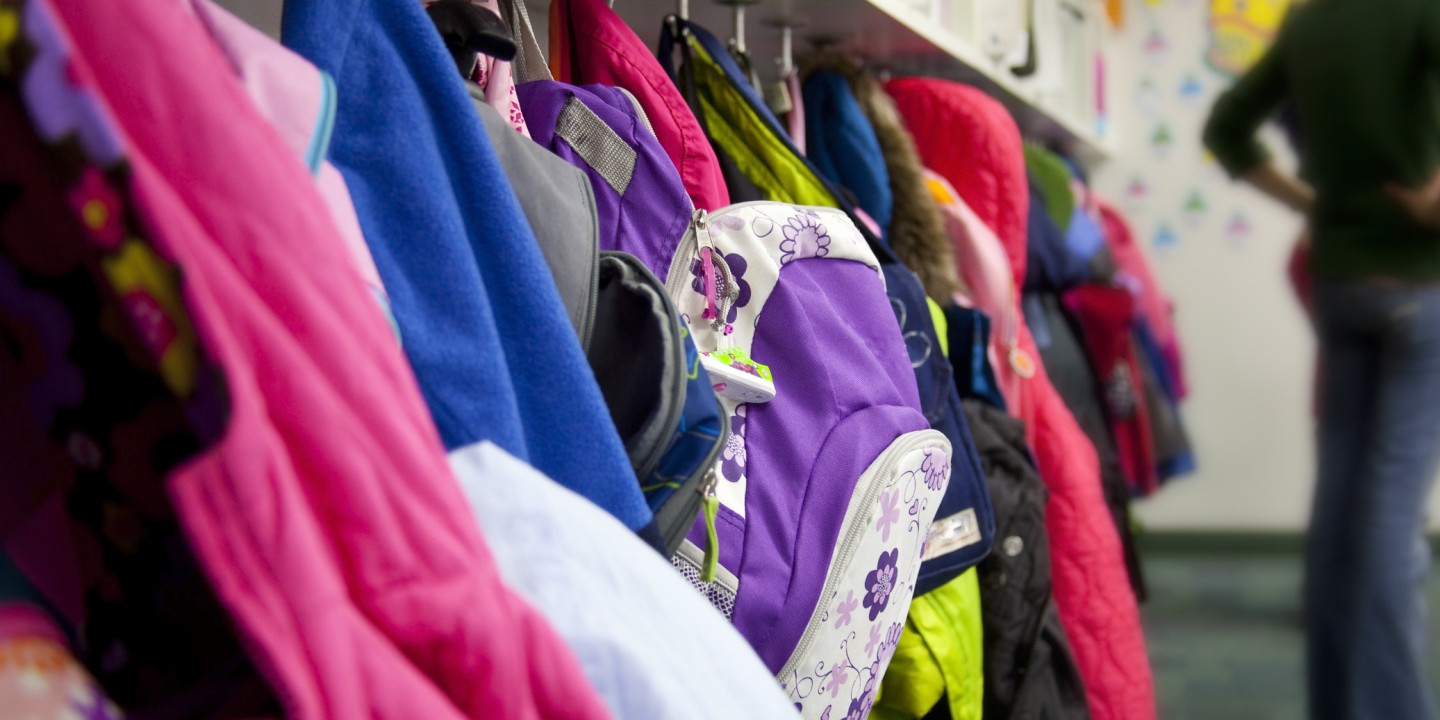I was an elementary-school pickpocket
Thirty years later my petty crime came back to haunt me.

I don’t remember the physical act of stealing Edward’s wallet. I remember wanting it, and then I remember my heart racing and my cheeks burning as my first-grade teacher queried the class about the missing item, which contained exactly one dollar—the cost of a hot lunch in our elementary school cafeteria. I can’t even remember what I desired more—the bright yellow plastic Charmkins wallet or the dollar. It’s possible that I didn’t truly want either. It’s possible that I was simply curious to find out what it would be like to take something that wasn’t mine.
What I discovered about theft is that I don’t have the conscience for it. My initial physical reaction gave way to a chronic ache that settled into my soul. I know this sounds melodramatic. But I would forget about what happened for a week or even a month, and then something would remind me and I would remember again with a shudder: Oh, right. I did that. And having done that makes me a bad girl.
Read our latest issue or browse back issues.
For two years I wrestled with this shame, until one night I couldn’t bear it anymore. I went to my mother, who was surely bewildered to see me there weeping not ten minutes after she’d tucked me in for the night. Between hiccupping sobs, I confessed what I’d done. Wisely recognizing that I’d punished myself sufficiently, she declined to dole out additional consequences for my misdeed. Instead she suggested reparations: I’d long since lost the wallet, but we could send Edward a dollar in the mail, anonymously. I still couldn’t bring myself to look at him during recess, but then I avoided most of the boys when I was in third grade.
For years I didn’t think about this incident, until my daughter’s sixth birthday. We had decided to start giving her an allowance—six dollars per month, to be raised by one dollar annually until she turns 18 (or until she negotiates a better package). The night before her birthday I realized that I’d forgotten to purchase a wallet, which I’d meant to give her with the first installment of her allowance. In a fantastic coincidence, however, I opened a package from my parents that contained not only birthday gifts but also two children’s wallets that my mother had found in her basement and thought I might want. I tucked six dollars into one of them and wrapped it up in paper and ribbon.
I didn’t recognize that it was the wallet until the next morning, when my daughter was excitedly exploring her gift. “What’s this?” she asked.
Oh, nothing, dear. That’s just an identification card with the name “Edward” written in purple marker, because your mother actually pilfered this wallet from her locker mate nearly 30 years ago.
I want my iniquities to be blotted out, but sin seems to have an uncanny staying power.
I’m a sinner. It seems ridiculous to pretend otherwise, to say nothing of dishonest. I’ve lusted and cheated and stolen. While I’m being honest, I’ve also been dishonest. And without fail, every time I think I can get away with whatever temptation has gotten the best of me, I experience the same wave of searing guilt. I’m a sinner, yes, but I also appear to be severely allergic to sinning. It’s a good allergy to have, for the most part. Sometimes my guilt is clean and sharp and effective; I regret what I’ve done and do whatever I can to remedy the situation. I repent. I go and sin no more.
I’m happy to report that I learned my lesson about theft. I can be trusted with petty cash (at least morally; my math skills are another story). If I inadvertently leave a store without paying for something, I march right back in and insist on forking over whatever I owe. One time we got all the way home before I discovered that my daughter had accidentally shoplifted a package of Christmas ornaments; she’d been holding them when we went through the checkout and simply forgot to put them on the conveyor belt. We drove back across town to pay the $1.07 that we owed. I couldn’t bear to deck our tree with purloined balls.
But sometimes my guilt isn’t as helpful. Sometimes it doesn’t compel me to action. Sometimes it hardens and calcifies, leaving me paralyzed by shame. I don’t believe for a moment that it was the Holy Spirit whispering words of condemnation in my ear when I was a long-suffering elementary school pickpocket. Conviction, yes. But not condemnation. If the Holy Spirit had anything to do with that episode, I like to think she was the one who finally gave me the courage to confess.
For good or for ill, my strong reaction to sin is the thing that has convinced me of sin’s power. For many Christians this is a given: the problem of sin is paramount, and the whole messy and beautiful story of the gospel is boiled down to little more than a solution for this problem. The Great Physician isn’t a source of wholeness and healing, just a bored doctor doling out prescription pills for curing sin-sick souls. The cross isn’t a manifestation of God’s suffering love but rather a handy economic transaction to zero out our debts.
In Found: A Story of Questions, Grace, and Everyday Prayer, Micha Boyett recounts an experience with a traveling revival preacher who was fixated on sin. The preacher insinuated that God knew about all the despicable things these upstanding Christians were doing behind closed doors, and he invited his listeners to join him in living a sinless life. Boyett writes:
Is this it? Sinlessness? I asked myself. Did God really create us just so we would not screw up? Is this preacher really living the full life Jesus says we can live? . . . I waited, but no one stood up. No one said, “Brother, Jesus has something even more beautiful than sinlessness.”
Yet even as she resisted the compulsive scrupulosity of the man in the pulpit, Boyett was struck by a different vision of sin:
It was not something I could just stop. It was not simple wrongdoing. It was deeper. It was brokenness. It was in me more than it was coming out of me. My spirit was tilted, imbalanced. I was off kilter deep in the unknown places, and that was what needed fixing. And, even more, this was the case for the whole world. We were all askew, all looking for something to right us, to set us toward True North.
This alternate vision of sin resonates with me. I too am off-kilter, and because of this, I do off-kilter things. Without jumping on the same bandwagon as the traveling preacher, I want to pound on the table (or the pulpit, as the case may be) and shout words of lamentation, of confession, of contrition. I want to cry out: I am broken. Fix me! I want to trust that this is precisely the work that God is up to in Jesus Christ—not so that we can live a tediously sinless life, flagellating ourselves for every misstep, but so that we might “have life—indeed, so that [we] could live life to the fullest” (John 10:10, CEB).
Yet so often in the churches in which I have worshiped this God of life (liberal, mainline), we don’t so much as cop to our sins in the safety and anonymity of a corporate prayer of confession. (Except, perhaps, in Lent, when we might slip a confession in between the children’s moment and the choral anthem.) We talk about social sins—indeed, liberal preachers have an imperfect yet occasionally prophetic history of boldly taking on societal ills. But to actually talk about personal sin? No. Not unless we’re talking about it behind someone’s back, actively enjoying the personal sin of gossip.
Sin has been carefully excised from the vocabulary of our faith. But neglecting it doesn’t make it not exist. Not talking about sin doesn’t free us from its power. Not talking about sin means that when our brokenness hurts us and the ones we love—when our brokenness hurts our holy God—we don’t have the language to cry out for forgiveness. We don’t have the words to seek salvation from the one we are told lived and died to ensure it would be ours to grasp.
We need to talk about sin because we need to talk about grace, and grace doesn’t make a whit of sense without a hearty understanding of sin. Not that grace is ever sensible; it is the gift born of God’s altogether senseless devotion to an ever-wayward creation. Dietrich Bonhoeffer makes the bond between sin and grace abundantly clear when he writes of “costly” grace, which is “costly because it condemns sin, and grace because it justifies the sinner.” Yet we fear talking about sin, because this is tantamount to being judgmental. Praying a prayer of confession on a Sunday morning is equivalent to shaming the congregation. Holding the members of one’s community accountable to mutually agreed upon ethical and moral standards is pharisaical.
And surely, there are many people who have experienced Christianity as an endless source of guilt and shame. Sin can be talked about all wrong. But the solution cannot be to neglect it altogether. Rather, we need to talk about it well. We need to remember how dearly Jesus loved sinners—but not forget the part about how he sent them off with instructions to “go and sin no more.”
“Sin is our only hope,” claims Barbara Brown Taylor,
because the recognition that something is wrong is the first step toward setting it right again. There is no help for those who admit no need of help. There is no repair for those who insist nothing is broken, and there is no hope of transformation for a world whose inhabitants accept that it is sadly but irreversibly wrecked.
Likewise, there is only sorrow for one who knows she’s done wrong but doesn’t know the way to make it right. She cries in her bed at night, bereft of a means to reconcile, believing that she’s tarnished her very soul with an evil that can’t be washed away. She cries in that bed until instinct and desperation clear the only way forward, the way of repentance. My mother didn’t tell me to pray, but she didn’t have to. I didn’t need to. Her pajamas and bathrobe were her priestly vestments that night as she listened to my confession, gave me a gentle penance, and offered me sweet words of absolution.
If only we had returned the wallet, too.
A version of this article appears in the print edition under the title “Sin’s staying power.”






